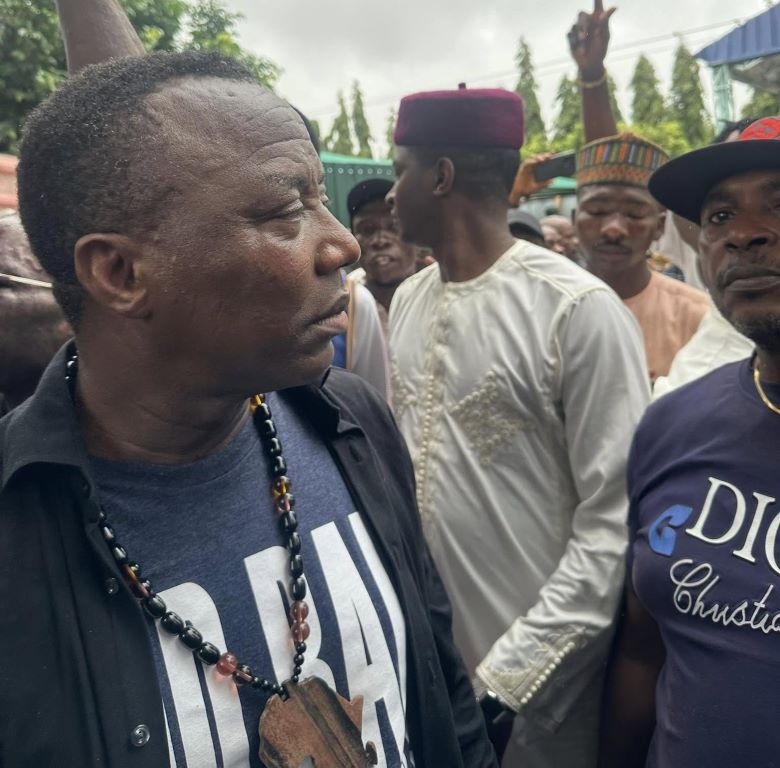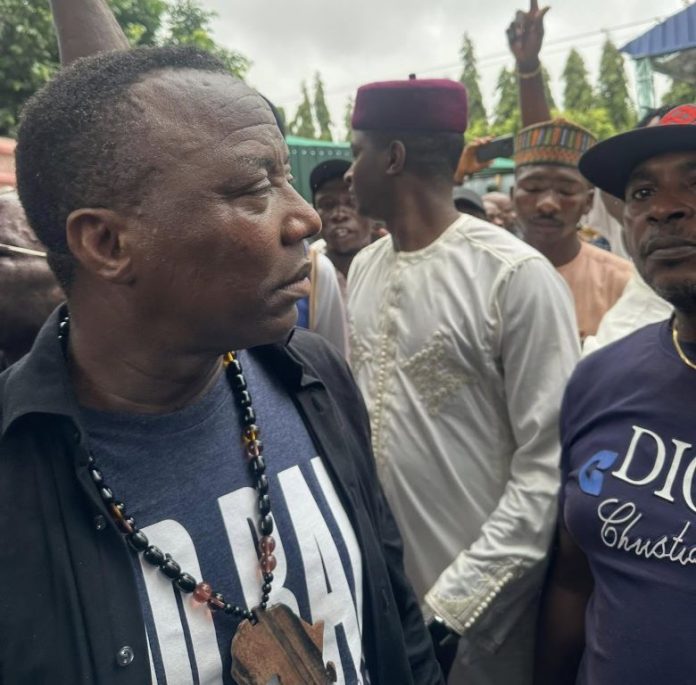By Kelvin Adegbenga
Many observers anticipated a well-planned, people-centred campaign that might bring significant improvements when Omoyele Sowore revealed plans to spearhead a protest supposedly in favour of better welfare for the Nigeria Police Force.
But the results have told a different tale, one of lost chances, conflicting interests, and eroding public confidence. What started out as an apparently admirable cause soon lost its strategic clarity and moral compass.
High Aspirations, Political Overtones
Sowore’s original call inspired some Nigerians to participate in the demonstration. It is often acknowledged that rank-and-file police officers face subpar working conditions, low pay, and insufficient operational resources. He seemed to portray himself as a champion of justice and those who uphold it by bringing these concerns to light.
However, it did not take long for political undertones to overshadow the core objectives. Critics, including civil society groups and pro-police advocacy bodies like the Integrity Youth Alliance, argued that the protest was less about police welfare and more about advancing an anti-government agenda. The timing, rhetoric, and confrontational tone led many to view the initiative as part of a broader political campaign rather than a sincere call for institutional reform.
Cut off contact with the actual police
The absence of support or involvement from the Nigeria Police Force was arguably the most obvious weakness in Sowore’s plan.
The organisation it purported to support never formally approved the protest. Indeed, several law enforcement officials and public relations representatives distanced themselves from the campaign, casting doubt on its validity.
Rather than building partnerships with police welfare associations or initiating dialogue with stakeholders within the security sector, the protest was launched in a manner that alienated those it purportedly represented.

This disconnect significantly weakened its credibility and undercut any momentum it might have had.
Strategic drift and inadequate mobilisation
Poor mobilisation and an unclear plan were additional factors that contributed to the protest’s failure. Even though Sowore is no stranger to activism, the demonstration lacked the grassroots support and organisational discipline required for long-term effects.
There was no platform for negotiations, no clear framework for demands, and no organised route to policy advocacy.
The protest mostly depended on social media rhetoric and intermittent street action, which, although dramatic, seldom led to long-term institutional change, rather than involving the public and stakeholders through inclusive forums.
The campaign was unable to produce the kind of moral or public authority required to propel reforms since there was no concerted national or local discussion about police welfare.
Mixed Messages and Fatigue in the Public
The protest also suffered from a lack of consistent messaging. At times, the focus veered off course, addressing unrelated political grievances, attacking perceived enemies, or reigniting old ideological battles.
This scattergun approach not only confused supporters but also alienated neutral observers who might have been sympathetic to the cause.
Additionally, the Nigerian public, fatigued by years of protests yielding little tangible change, was reluctant to rally behind a movement perceived as politically motivated. Without a unifying message or a clear end goal, many Nigerians simply tuned out.
In conclusion, Sowore’s police protest began with the potential to highlight a deeply rooted issue in Nigeria’s security architecture, the welfare of police officers. However, that opportunity was lost in a fog of political confrontation, strategic missteps, and messaging failure.
By alienating the very institution he sought to advocate for and allowing political motives to cloud the objective, Sowore inadvertently turned what could have been a powerful reform movement into a symbolic, short-lived disruption.
To achieve real change, future campaigns must be built on inclusive dialogue, well-defined objectives, and genuine engagement with all stakeholders, especially those directly affected. Without this, even the most well-intentioned protest risks being lost in the noise.
Kelvin Adegbenga is the National Coordinator of the Integrity Youth Alliance. kelvinadegbenga@yahoo.com. @kelvinadegbenga


